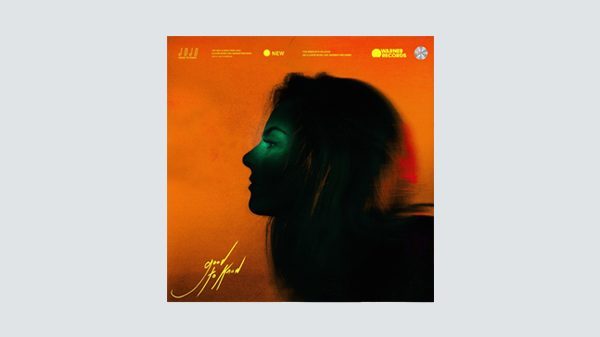JoJo’s ‘Good to Know’: Album Review
By A.D. Amorosi
LOS ANGELES (Variety.com) – The line on Joanna Levesque, then and now, has been nearly the same since she began making records at age 13. JoJo, the youngest female solo artist to have a No. 1 in the U.S. with 2004’s “Leave (Get Out),” made mature-for-her-age pop R&B. Sure, as a teen, she was more pop than R&B — a marketing trick if anything — and didn’t possess soul’s deep emotion, or its rhythmic density, on the early albums “JoJo” and “The High Road.” But JoJo conveyed a twee sense of street-sultriness (even if it was just a street in a cheery cul de sac). She had crazy soprano pipes ad a dynamic range when her more cosmopolitan songwriting material demanded its use, and when she didn’t just stick to the overuse of melisma and multi-tracked vocals on melodies that rarely demanded her attention.
After “The High Road,” JoJo’s synth-phonic and singing tricks remained the same, even if her beats got rougher, her lyrics grew harder and her tastes broadened on brooding mixtapes such as “Agápē” and her third full-length, “Mad Love.” Covering Drake’s “Marvin’s Room,” too, was a good move, an apt study in like-minded shushing vocal tics and ruminative, silken soul-hop. Still, tricks are for kids, and she hadn’t yet achieved the weight of conviction or a sense of self beyond being a third-rate Brandy. The old JoJo sounded good, but more like a kid with scraped knees looking for a Band-Aid rather than a woman in search of real soul or a sound to call her own.
“Good to Know” sounds as if that same kid has healed, grown up into a 29-year-old woman with all the self-knowledge and sensuality her age and experience should portray. It’s the album where all of her tics — of rushing too many breathy rap-sung syllables into one phrase, overly dreamy production and voluminous multi-tracked harmonies — have become agreeable signatures. JoJo sounds right on time: She’s grown into herself.
In a weird way, from its cultured chord changes and hushed emotive vocals to its clicking rhythms and orchestrated synths, “Good to Know” comes across like an update of Janet Jackson’s “Control” album, especially its simmering, slow closer “Funny How Time Flies (When You’re Having Fun).”
After the whispery sex-love-and-drugs intro of “Bad Habits,” JoJo hones in on the listener with “So Bad” and focuses our attention with the command, “Look. Boy. Look at me now.” The silken, spacy track has muted, aquatic keyboards, thud-knocking beats and a chorus of vocal FX in which she sings, in Gaga-like tones, a tale of seduction with “trench coat at the back of the bar in the shadows” imagery. But JoJo is truly here to reintroduce her musical themes and summon up the gods of control and command.
When she gets to the mid-tempo “Pedialyte,” JoJo welcomes one of the album’s most devout collaborators in Peder “Lido” Losnegard. The producer and co-writer of several hits by Chance the Rapper and Halsey brings JoJo’s multi-tracked harmonics some subtly unusual twists, injecting her heavenly sound with more of the heat and tension her ribald lyrics already provide.
And she does get racy. The Noise Club-produced “Gold,” with its typewriter-esque percussion and detuned melody (imagine a warped 45 of The Stylistics’ “You Make Me Feel Brand New”), finds the flurries of multi-tracked JoJo in a metaphorical mood when comparing sex with divinity. But the see-sawing tango of “Comeback,” with rude guest stars Tory Lanez and 30 Roc, is positively X-rated. So, too, is “Man,” with its handsome Latin guitar licks and her call for “a f—ing man / Someone to want me like a fan… / He ride for me like he a stan.”
OK, so JoJo can still use help in the lyrical department. Musically and vocally, however, she’s got the formula down cold. While a breezy Cali-cool guitar haunts the robo-R&B of “Small Thing” and its smoldering melodic twists, the Lido-produced “Think About You” finds the singer relying on her own tripled-up voice in harmony with itself as a guide to the highest form of plastic soul.
JoJo has one more trick up her sleeve. Just before you grow bored of the over-production, the layered synths melding with her harmonies and too much melisma, she pulls out the two least FX-driven tracks on “Good to Know” with the two most pointed, contagious melodies.
Produced and co-written with Lido and Natalie Dunn, the slow “Don’t Talk Me Down” finds JoJo with a quivering, full-throated, un-processed vocal swooning atop a lounge piano, a very real set of strings and just a touch of Hammond organ. The melody and arrangement is pure Philly International Records — Thom Bell/Linda Creed-style — and the sentiment of its lyrics is romantic to the point of burning your fingers on the still flickering candle. Here, JoJo sounds unbound and unrestricted, her search for independence and self complete. Only a follow-up such as the last song on “Good to Know,” the spacy Jam & Lewis-like ballad “Proud (Outro),” would suffice.
This finale, produced and co-written by Lido, JoJo and Kennedi (Ariana Grande, Dua Lipa), has the matured singer doing her breathy, rushed vocal best, slowly and tenderly, underpinned by the fluttering bass work of Thundercat and a sentiment that reveals just where her head must be: “People either love you or they won’t / It doesn’t really matter if they don’t.” Spoken like a woman in control.

